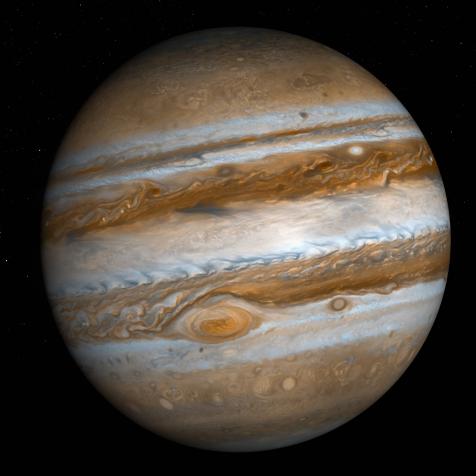
Elen11
Six Planets are Retrograde, What Does that Mean for You?

Spoiler alert: It's an optical illusion.
All the planets of the solar system orbit around the Sun in the same direction. From our vantage point on the Earth, this makes them appear to march across the sky from season to season in the same direction. While you can’t discern this movement with your eyes in a single night, you can capture it if you pay close enough attention: one night the planet will be around a certain group of stars, and many months later it will be around a new clump of stellar friends.
These are the planets currently moving in retrograde:
- Mercury from Sept. 10 to Oct. 2
- Jupiter from July 28 to Nov. 23
- Saturn June 4 to Oct. 23
- Uranus Aug. 24 to Jan. 23
- Neptune June 28 to Dec. 4
- Pluto April 29 to Oct. 8
Eventually, the planets will return to the place they started. How long that takes depends on their distance from the Sun; planets with smaller orbits, like Mercury and Venus, will loop around our sky much faster than more distant worlds like Jupiter and Saturn.
But sometimes the planets appear to retrace their steps and move backward over the course of a few days or months, a phenomenon known as retrograde motion. If all the planets are moving in the same direction, then what gives?
The appearance of retrograde motion is due to our vantage point on the Earth. Just like all the other planets, we too are also orbiting around the Sun at our own speed. From our point of view, sometimes we “catch up” to another planet in its own orbit, making it appear as if it’s moving backward relative to us.
Think of runners on a racetrack. From the point of view of the stands, everybody’s running in the same direction. But from the point of view of one of the runners, their fellow racers may be moving away from them or coming closer to them, depending on their speeds and where on the track they happen to be.
You may have recently seen some articles talking about how six planets are currently in simultaneous retrograde. What does this mean for you, personally?
Nothing. It means nothing at all. One planet moving in retrograde doesn’t mean anything either – it’s literally just a planet moving in its orbit, doing the same thing it’s been doing for the past four and a half billion years. Multiple planets moving in retrograde is just a random coincidence. If those runners on the racetrack were going at it for eons, circling around and around without end, these kinds of coincidences would be bound to happen.
If anyone had asked an astronomer from centuries ago, they would have been able to predict with extreme precision when this simultaneous retrograde would occur. In fact, you can fire up any free astronomy software and do the same thing yourself, finding out exactly when the next one will happen, and the next, and the next, for millennia to come.
Planets do what they’re going to do, and what they’ve done for a very long time, and your personal life is in your hands, not in the stars above.


















